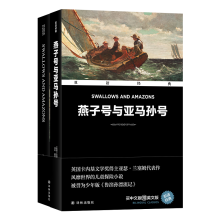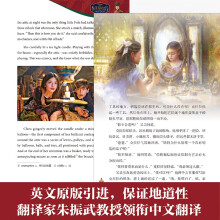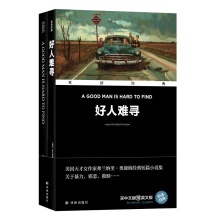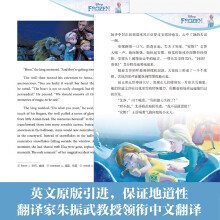In the spring of 1871, a young man picked up a book and read twenty-one words that had a profound effect on his future. A medical student at the Montreal General Hospital, he was worried about passing the final examination, worried about what to do, where to go, how to build up a practice, how to make a living.
The twenty-one words that this young medical student read in 1871 helped him to become the most famous physician of his generation. He organised the world-famous Johns Hopkins School of Medicine. He became Regius Professor of Medicine at Oxford—the highest honour that can be bestowed upon any medical man in the British Empire. He was knighted by the King of England. When he died, two huge volumes containing 1, 466 pages were required to tell the story of his life.
His name was Sir William Osler. Here are the twenty-one words that he read in the spring of 1871—twenty-one words from Thomas Carlyle that helped him lead a life free from worry:“Our main business is not to see what lies dimly at a distance, but to do what lies clearly at hand.”
Forty-two years later, on a soft spring night when the tulips were blooming on the campus, this man, Sir William Osler, addressed the students of Yale University. He told those Yale students that a man like himself who had been a professor in four universities and had written a popular book was supposed to have “brains of a special quality”. He declared that that was untrue. He said that his intimate friends knew that his brains were “of the most mediocre character”.
What, then, was the secret of his success? He stated that it was owing to what he called living in “day-tight compartments”. What did he mean by that? A few months before he spoke at Yale, Sir William Osler had crossed the Atlantic on a great ocean liner where the captain standing on the bridge, could press a button and—presto! —there was a clanging of machinery and various parts of the ship were immediately shut off from one another—shut off into watertight compartments. “Now each one of you,” Dr. Osler said to those Yale students, “is a much more marvellous organization than the great liner, and bound on a longer voyage. What I urge is that you so learn to control the machinery as to live with ‘day-tight compartments’ as the most certain way to ensure safety on the voyage. Get on the bridge, and see that at least the great bulkheads are in working order. Touch a button and hear, at every level of your life, the iron doors shutting out the Past—the dead yesterdays. Touch another and shut off, with a metal curtain, the Future—the unborn tomorrows. Then you are safe—safe for today!...Shut off the past! Let the dead past bury its dead...Shut out the yesterdays which have lighted fools the way to dusty death...The load of tomorrow, added to that of yesterday, carried today, makes the strongest falter. Shut off the future as tightly as the past...The future is today...There is no tomorrow. The day of man's salvation is now. Waste of energy, mental distress, nervous worries dog the steps of a man who is anxious about the future...Shut close, then the great fore and aft bulkheads, and prepare to cultivate the habit of life of ‘day-tight compartments’.”
Did Dr. Osler mean to say that we should not make any effort to prepare for tomorrow? No. Not at all. But he did go on in that address to say that the best possible way to prepare for tomorrow is to concentrate with all your intelligence, all your enthusiasm, on doing today's work superbly today. That is the only possible way you can prepare for the future.
By all means take thought for the tomorrow, yes, careful thought and planning and preparation. But have no anxiety.
During the Second World War, our military leaders planned for the morrow, but they could not afford to have any anxiety. “I have supplied the best men with the best equipment we have,” said Admiral Ernest J. King, who directed the United States Navy, “and have given them what seems to be the wisest mission. That is all I can do.”
“If a ship has been sunk,” Admiral King went on, “I can't bring it up. If it is going to be sunk, I can't stop it. I can use my time much better working on tomorrow's problem than by fretting about yesterday's. Besides, if I let those things get me, I wouldn't last long.”
Whether in war or peace, the chief difference between good thinking and bad thinking is this: good thinking deals with causes and effects and leads to logical, constructive planning; bad thinking frequently leads to tension and nervous breakdowns.
I had the privilege of interviewing Arthur Hays Sulzberger, publisher(1935~1961 ) of one of the most famous newspapers in the world, The New York Times. Mr. Sulzberger told me that when the Second World War flamed across Europe, he was so stunned, so worried about the future, that he found it almost impossible to sleep. He would frequently get out of bed in the middle of the night, take some canvas and tubes of paint, look in the mirror, and try to paint a portrait of himself. He didn't know anything about painting, but he painted anyway, to get his mind off his worries. Mr. Sulzberger told me that he was never able to banish his worries and find peace until he had adopted as his motto five words from a church hymn: One step enough for me.
Lead, kindly Light...
Keep thou my feet:
I do not ask to see The distant scene; one step enough for me.
……
展开











——约翰·肯尼迪(美国第35任总统)
卡耐基作品的目的就是帮助你解决你所面临的*问题:如何在日常生活、商务活动与社会交往中与人打交道,并有效地影响他人;如何克服忧虑,创造幸福美好的人生。当你解决这些问题之后,其他问题也就迎刃而解了。
——拿破仑·希尔(成功学专家、畅销书作者)
成功其实如此简单,只要遵循卡耐基先生这些简单适用的人际标准,你就能获得成功。
——马克·维克多·汉森(《心灵鸡汤》作者)
戴尔·卡耐基先生通过他的演讲和作品,教给人们一些处世的基本原则和生存之道,这是我们每个人都应该学习的人生必修课。
——博恩·崔西(美国著名成功学家、畅销书作者)
在人类出版史上,没有哪本书能像卡耐基的著作那样持久深入人心;也唯有卡耐基的书,才能在他辞世半个世纪后,还能占据我们的排行榜。
——美国《纽约时报》